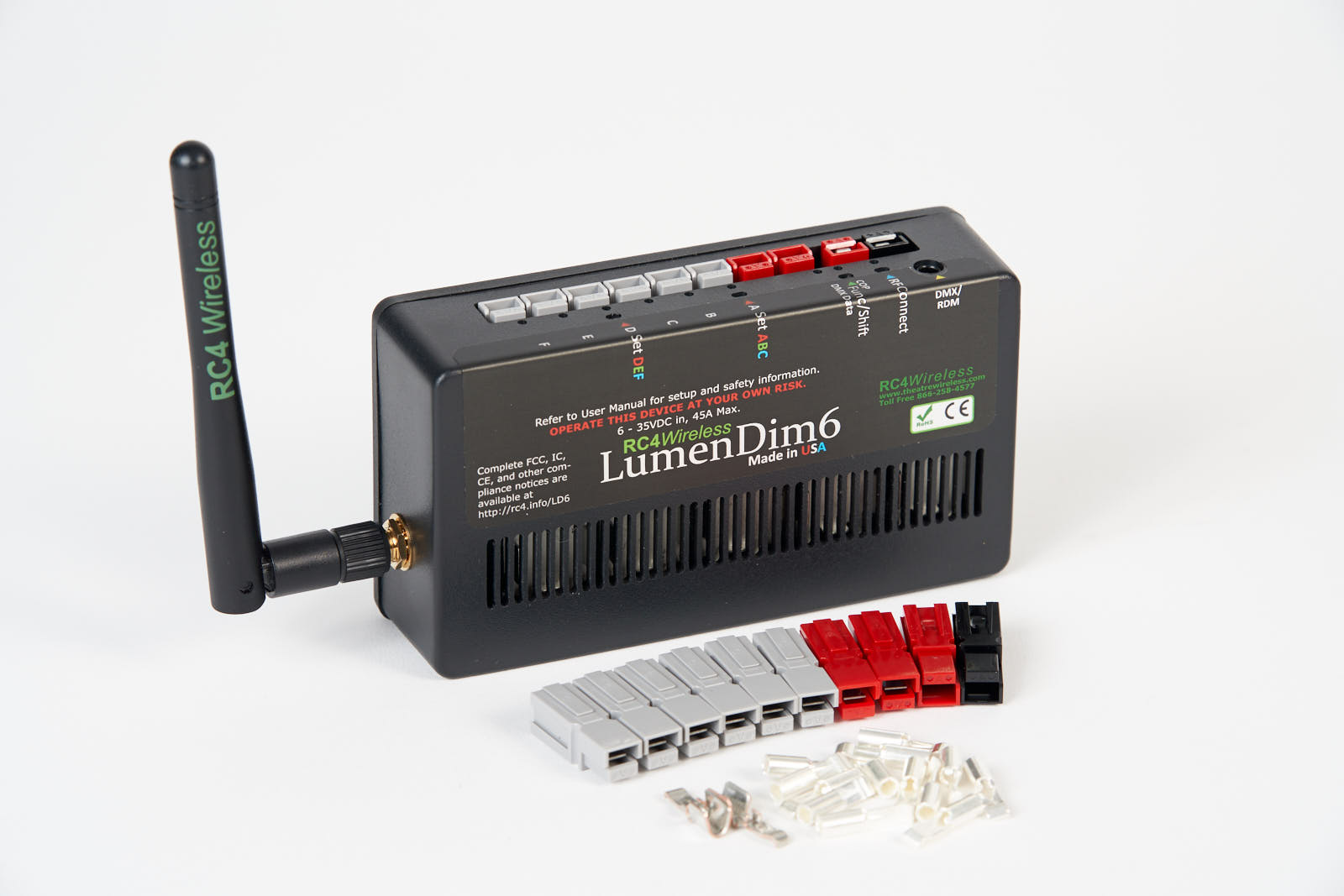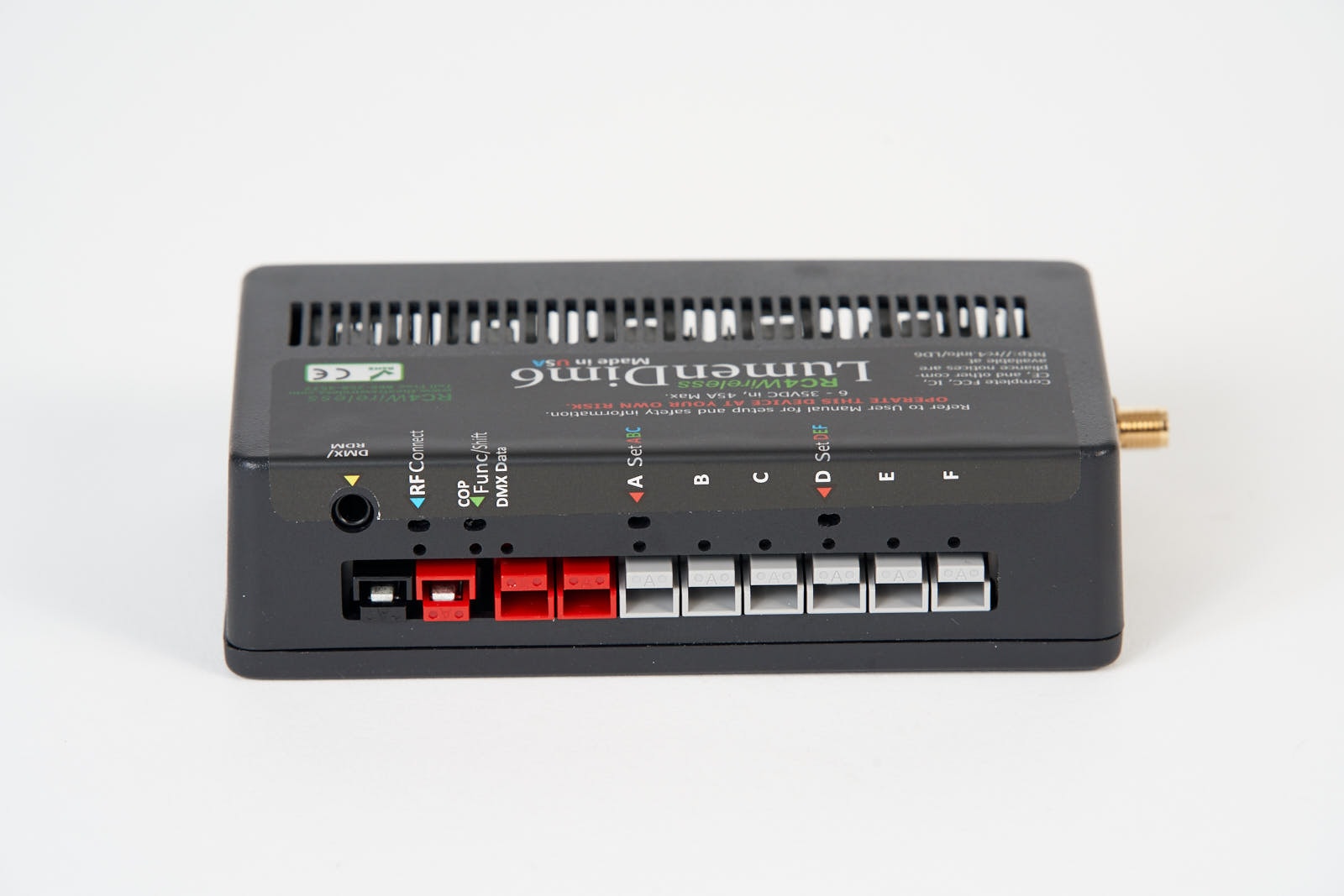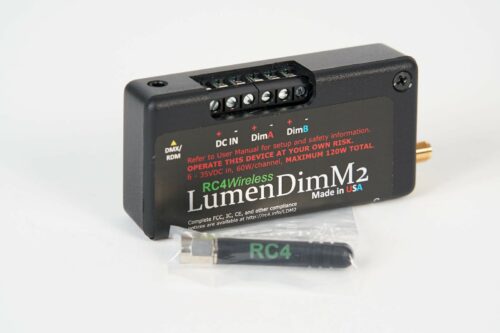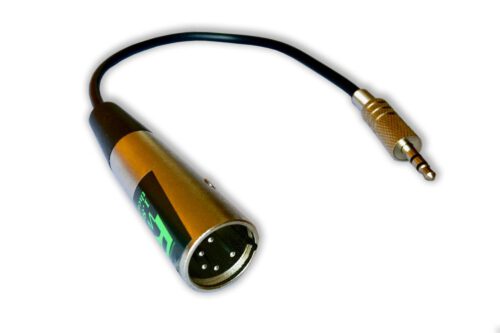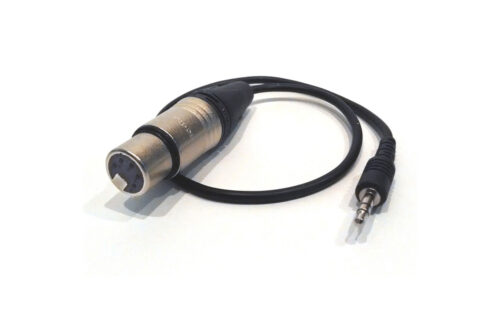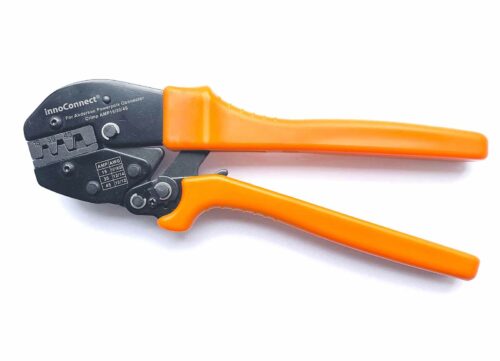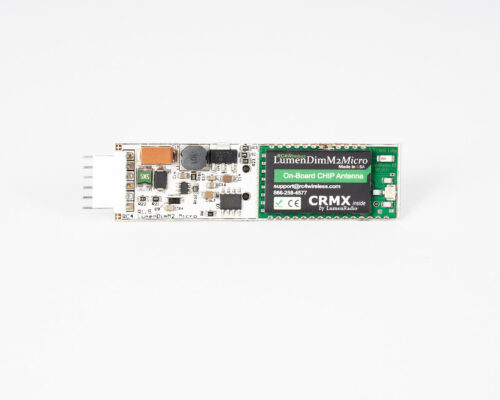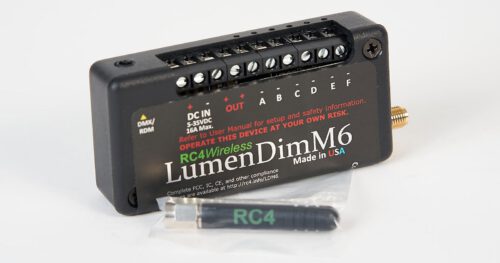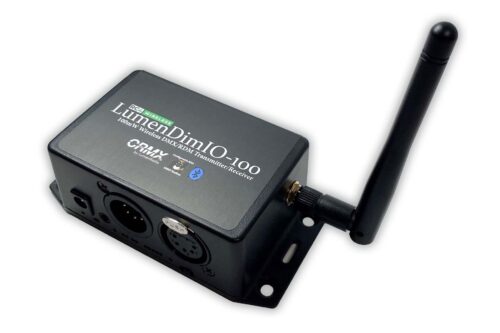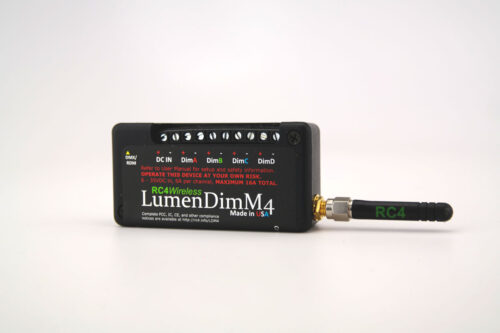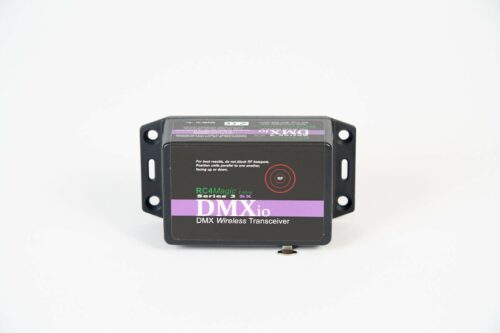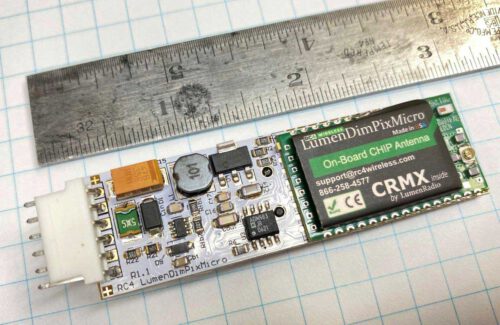The LumendDim6 is a highest power CRMX Lumenradio based device, delivering up to 42A across 6 dimmer channels — 500W at 12V, 1000W at 24V. Perfect for wireless lighting on turntables and set pieces of any size. Provides all RC4 Series 3 features with the power to go big.
It smoothly dims (RGBA/WW/CW) LEDs and lamps, controls small DC motors with wide-range speed control, and provides many features to optimize color and appearance for a variety of theatre and motion-picture applications.
Each LumenDim4 purchase comes with one 2dBi antenna and one set of Anderson Connectors.
 It includes 19-bit dimming, which is eight times finer than 16-bit with a whopping 524,000 steps of resolution. The digital persistance for ISL dimming curve simulates the behavior of a tungsten lamp for LED with no visible stepping.
It includes 19-bit dimming, which is eight times finer than 16-bit with a whopping 524,000 steps of resolution. The digital persistance for ISL dimming curve simulates the behavior of a tungsten lamp for LED with no visible stepping.
The LumenDim6 also features dimmer curve tweaking to find the most visually linear and pleasing response with any LED technology being used.
OneTouch
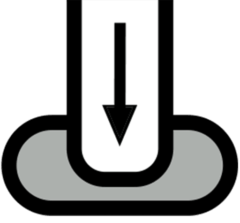 The RC4 LumenDim6 provides two versatile dimmer outputs. Like all RC4Magic devices, it includes a built-in radio receiver and uses RC4 OneTouch™ for easy assignment of any DMX channel and dimmer curve to any dimmer with a single press of a single button.
The RC4 LumenDim6 provides two versatile dimmer outputs. Like all RC4Magic devices, it includes a built-in radio receiver and uses RC4 OneTouch™ for easy assignment of any DMX channel and dimmer curve to any dimmer with a single press of a single button.
RDM
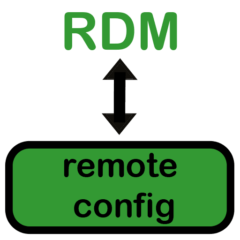 Device configuration can also be done with Remote Device Management (RDM) wired and wireless.
Device configuration can also be done with Remote Device Management (RDM) wired and wireless.
HSL Color Controller
 Two channels are ideal for hybrid-white LED color-mixing, to transition between different color temperatures of white. The RC4 Hue/Saturation/Level (HSL) Color Controller delivers best-in-class color consistency over the entire dimming range, ensuring precise mix ratios even at very low dimmer levels using 16-bit (65,536 step) dimming. Unlike single-channel DMX control of color from a console, which is limited to 256 steps and becomes heavily quantized at low levels, the RC4 HSL Color Controller maintains high ratiometric precision throughout the dimming range.
Two channels are ideal for hybrid-white LED color-mixing, to transition between different color temperatures of white. The RC4 Hue/Saturation/Level (HSL) Color Controller delivers best-in-class color consistency over the entire dimming range, ensuring precise mix ratios even at very low dimmer levels using 16-bit (65,536 step) dimming. Unlike single-channel DMX control of color from a console, which is limited to 256 steps and becomes heavily quantized at low levels, the RC4 HSL Color Controller maintains high ratiometric precision throughout the dimming range.
ColorMatch
 In addition, RC4 ColorMatch™ on dimmers makes it easy to calibrate the color rendering between two light sources.
In addition, RC4 ColorMatch™ on dimmers makes it easy to calibrate the color rendering between two light sources.
PWM
 Many pulse-width-modulation (PWM) dimmers look good to the human eye, but produce banding, blinking, and other anomalies when used with video cameras. For this reason, all RC4 Series 3 dimmers provide multiple PWM frequencies. Low frequencies are most efficient, ideal for high-wattage incandescent lighting. Mid frequencies improve the appearance of LEDs by eliminating visible strobing in human peripheral vision. High frequencies eliminate video artifacts. And finally, supersonic PWM frequencies, though least efficient for power handling, provide PWM dimming without audio interference when used near microphones and electrified musical instruments.
Many pulse-width-modulation (PWM) dimmers look good to the human eye, but produce banding, blinking, and other anomalies when used with video cameras. For this reason, all RC4 Series 3 dimmers provide multiple PWM frequencies. Low frequencies are most efficient, ideal for high-wattage incandescent lighting. Mid frequencies improve the appearance of LEDs by eliminating visible strobing in human peripheral vision. High frequencies eliminate video artifacts. And finally, supersonic PWM frequencies, though least efficient for power handling, provide PWM dimming without audio interference when used near microphones and electrified musical instruments.
MOTOR CONTROL
 This dimmer can control the speed and direction of DC motors, stepper motors and the position of hobby servo motors.
This dimmer can control the speed and direction of DC motors, stepper motors and the position of hobby servo motors.
For direction control, a second dimmer output can be used to flip a relay that reverses the DC motor connectors – polarity of power directly controls spin direction.
DMX IN/OUT
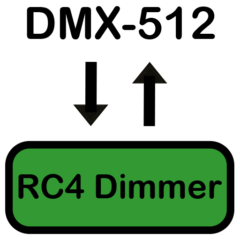 The LumenDim6, and all RC4 Series 3 dimmers, provide a wired DMX data port. In most cases this port is used to output data to nearby fixtures including fog machines, moving lights, and projector dousers. The DMX port can also be configured as a DMX input, allowing the LumenDim6 to be used as a wired dimmer. In this mode, a comprehensive RDM implementation includes E1.37 dimmer configuration parameters, numerous status sensors (voltage, temperature, current), and each individual dimmer appears as an RDM sub-device.
The LumenDim6, and all RC4 Series 3 dimmers, provide a wired DMX data port. In most cases this port is used to output data to nearby fixtures including fog machines, moving lights, and projector dousers. The DMX port can also be configured as a DMX input, allowing the LumenDim6 to be used as a wired dimmer. In this mode, a comprehensive RDM implementation includes E1.37 dimmer configuration parameters, numerous status sensors (voltage, temperature, current), and each individual dimmer appears as an RDM sub-device.
The RC4 DMX miniplug port can used with a range of DMX adaptors, including 3-pin and 5-pin male and female XLR connectors. The most common adaptor is the RC4DMX5FA with 5-pin female XLR connector.
Connection
Anderson Powerpole connections are provided for connection of the power supply (DC IN) and load devices (DimA to DimF). The supply powers both the internal electronics and the connected loads. Dimmers switch on the negative side of the circuit, ideal for common-anode (common positive) LED tape. Dimmer output voltage is precisely the DC power input voltage with no appreciable losses within the 42 Amps total power handling limit of the device.


